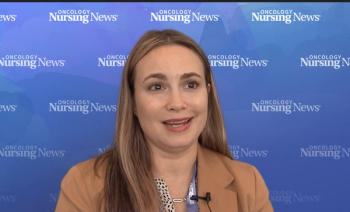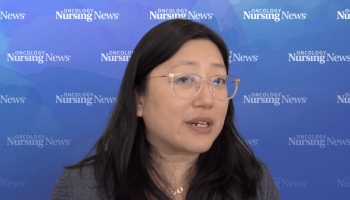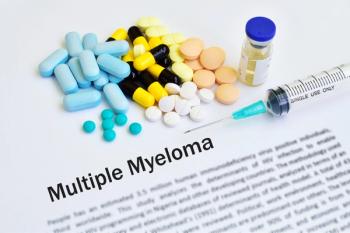
The staging of small cell lung cancer significantly impacts treatment plans and potential side effects.

The staging of small cell lung cancer significantly impacts treatment plans and potential side effects.

A supplemental biologics license application was submitted for telisotuzumab vedotin for the treatment of metastatic EGFR wild-type nonsquamous non–small cell lung cancer.

Patients with breast cancer who are of childbearing age may face issues that are accentuated by their age, an expert explained.

Pelvic transposition may improve quality of life and preserve fertility in patients with gynecologic cancer undergoing pelvic radiation.

A nurse practitioner discussed considerations for managing aromatase inhibitor-related joint pain in patients with breast cancer.

The World Health Organization updated their guidelines to include CINtec PLUS Cytology for gynecologic cancer prevention.

As biomarkers continue to be explored in resectable melanoma, oncology nurses will play a crucial role in the clinical trial process.

An expert explained the role oncology nurses and advanced practice providers play in caring for patients with sarcoma during treatment.

The addition of nivolumab to radiotherapy significantly improved freedom from biochemical recurrence in patients with high-grade prostate cancer.

P-BCMA-ALLO1 elicited high response rates and a manageable safety profile in heavily pretreated, relapsed/refractory multiple myeloma.

Oral drugs in the HR-positive, HER2-negative metastatic breast cancer space put a focus on clear patient-provider communication about adherence and adverse events.

The FDA granted a priority review to acalabrutinib for the treatment of previously untreated adults with mantle cell lymphoma.

The FDA approved neoadjuvant nivolumab plus chemo, followed by adjuvant nivolumab for non-small cell lung cancer without EGFR mutations or ALK rearrangements.

Follow-up from the CARTITUDE-4 trial showed that cilta-cel improved survival over standard of care in pretreated myeloma.

Cilta-cel led to high response rates and a promising safety profile in a real-world population of patients with relapsed/refractory myeloma.

Belantamab mafodotin plus KRd had a a manageable safety profile and deep responses in pretreated multiple myeloma.

Older adults with acute myeloid leukemia treated with anthracyclines tended to live longer, but also had more time spent in the hospital compared with those treated with HMAs.

ODAC voted against the use of PD-L1 expression as a predictive biomarker in gastric cancers.

When it comes to cancer-related malnutrition, nurses should look out for more signs than just weight loss.

Oncology nurses and APPs play a role in supporting caregivers while the patient they care for receives a diagnosis and cancer treatment.

Oncology nurses should inform patients about adverse events and the signs of interstitial lung disease before treating their breast cancer with T-DXd.

The agency approved selpercatinib for the treatment of patients with advanced or metastatic, RET-mutant medullary thyroid cancer.

Belantamab plus VRd led to promising outcomes in newly diagnosed transplant-eligible myeloma, study results showed.

An oncology research nurse balances patient care with rigorous data collection, emphasizing communication and collaboration to advance cancer research.


The FDA approved osimertinib for locally advanced, unresectable stage III EGFR-mutated non-small cell lung cancer.

Neoadjuvant immune checkpoint inhibitors plus chemotherapy also improved efficacy outcomes in PD-L1-positive/ERBB2-negative tumors.

Distant relapse-free survival was maintained with non-operative management of pMMR locally advanced rectal cancer.

Chlorhexidine dressings, along with proper patient education, are key in preventing central line-associated blood stream infections in patients with cancer.

A group of advanced practice providers discuss treatment options for a woman with newly diagnosed, transplant-ineligible multiple myeloma.